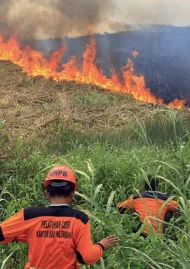Palm Oil 2016
Business, NGOs and the government at loggerheads over deforestation

The Indonesian Palm Oil Pledge (IPOP) was an agreement formed in 2014 by the four largest palm oil trading companies, committing to end deforestation, peatland development, and local exploitation not only in their operations but also across their supply chains. This pledge was initially viewed as a landmark victory for environmental NGOs, representing a significant step forward in the efforts to protect the Indonesian rainforest. However, by 2015, the situation had deteriorated. The Indonesian government, under pressure from domestic interests, began urging companies to withdraw from IPOP. The severe fire season of that year, driven by deforestation and peatland burning for palm oil plantations, further illustrated the agreement's shortcomings and the challenges of enforcement.
In the wake of IPOP’s collapse, several major challenges face business, non-profit, and government actors involved in the palm oil industry. Businesses like Wilmar, the world's largest palm oil trader, encounter difficulties in policing their supply chains to ensure compliance with NDPE (No Deforestation, No Peat, No Exploitation) standards under continuous NGO scrutiny. Additionally, threats of suppliers bypassing Wilmar to sell to markets indifferent to sustainability, such as China and India, threaten the company’s business. On the other hand, the potential loss of concessions designated for conservation due to unfavorable government reaction poses a financial threat as well.
Non-profits, including Greenpeace, grapple with strategic dilemmas about how to pressure the industry to adopt NDPE standards effectively. They must balance the need to enforce stringent environmental standards against the risk of economically harming companies supportive of sustainable practices, all while identifying effective levers of influence.
Government officials sympathetic to environmental concerns face the challenge of formulating policies that balance Indonesia's development needs with environmental protection. They must navigate the intricacies of policy implementation and enforcement in a decentralized governance structure riddled with corruption and ambiguous land-use laws.
Developed in partnership with the National University of Singapore Business School